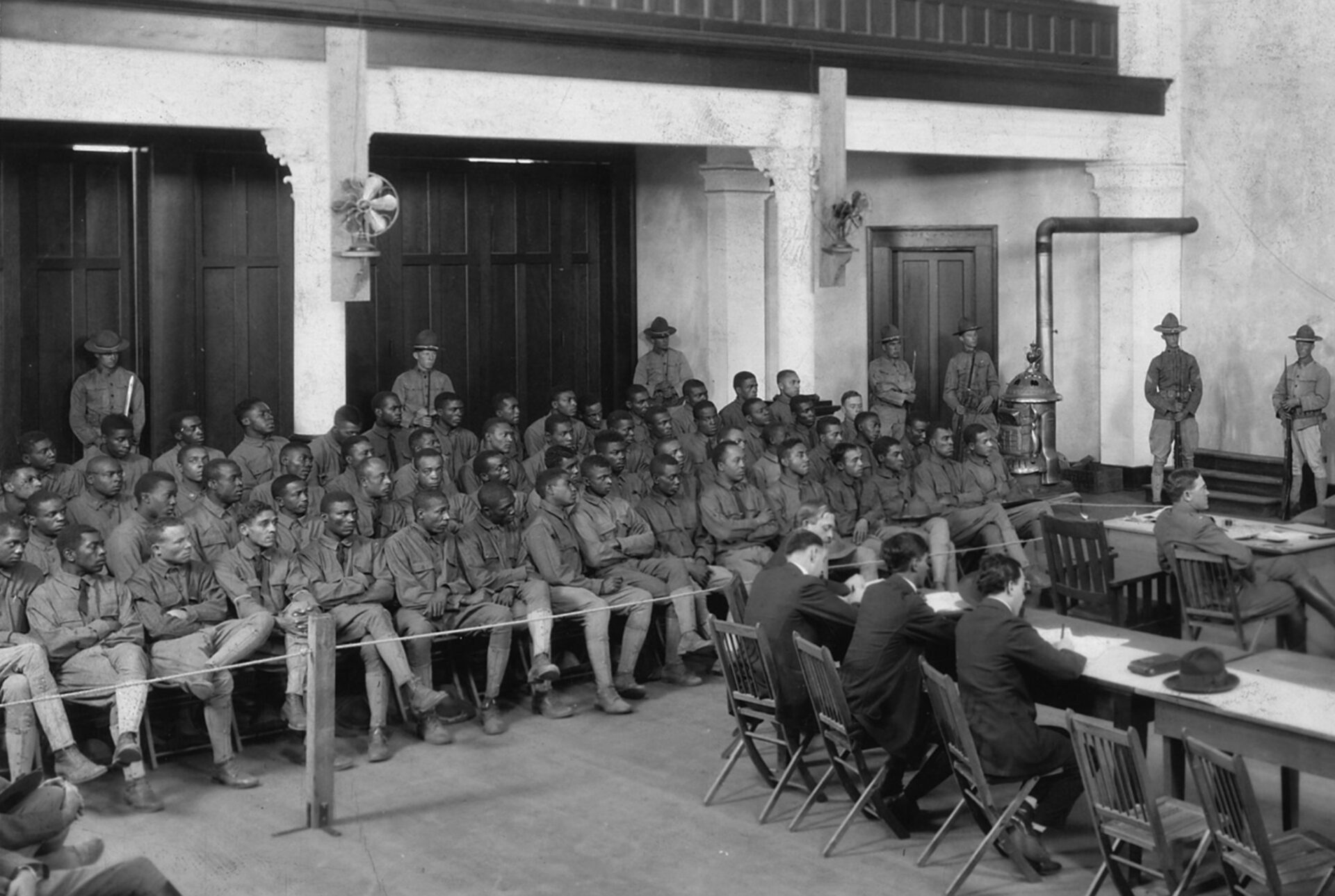
November 15, 2023
Buffalo Soldiers Stationed At Houston’s Camp Logan Cleared Of 100-Year-Old Convictions
Over 100 years ago, 110 Black soldiers stationed at Camp Logan were convicted of murder, mutiny, and assault when a riot broke out in Houston in 1917.
Over 100 years ago, 110 Black soldiers stationed at Camp Logan were convicted of murder, mutiny, and assault when a riot broke out in Houston in 1917. According to the Houston Chronicle, 19 of those servicemen were executed at Fort Sam Houston, but have posthumously had those convictions overturned.
On Nov 13, the U.S. Army recognized those overturned convictions in a ceremony at the Buffalo Soldiers National Museum in Houston and Deputy Assistant Secretary of the Army Michael Mahoney directed the Army Review Boards agency to set aside all convictions, which will show on their service records that they served the Army honorably.
This is the first time in its history that the Army has made such a decision, according to historian John Haymond, who told the Chronicle, “This is not only the largest murder trial in American history, this is also the largest court-martial in American history, and no case this large or this serious with this many death penalties has ever been completely overturned by the Army on review.”
Haymond, along with Dru Brenner-Beck, a retired military officer and professor at South Texas College of Law, co-authored the petition that Army Secretary Christine Wormuth used to reach her decision.
Wormuth decided that the soldiers would be awarded individual rights, privileges, and property lost, which makes their descendants eligible to receive benefits. In addition, each soldier, or in this case their families, will receive an Honorable Discharge Certificate, which commends them for “honest and faithful service.” Haymond also remarked that the Army is using this as an attempt to repair a past wrong, saying “In legal terms, you would say this case is sui generis, meaning that it stands alone. It is truly unique.”
Haymond added, “This is the Army recognizing it’s never too late to do the right thing and correcting its error of the past.”
The Buffalo Soldiers were sent to Houston to guard the construction of Camp Logan, now part of Memorial Park. The soldiers arrived on July 27, 1917, and they found a city deeply entrenched in Jim Crow laws. There were often disputes at the site involving white workers, police officers, and soldiers, which sometimes turned violent. Often, soldiers were called racial slurs and the police would arrest and beat soldiers who stood up to them.
On August 23, 1917, whites fought with the soldiers and when the fighting ended 17 people were dead. Everything came to a head when police raided a craps game and assaulted a Black woman, which ended with the arrest of a Black soldier once he spoke up about it. A couple of hours later, a military police officer, Charles Baltimore, spoke with police, and was pistol whipped, shot at, beaten, and arrested. The soldiers heard rumors that Baltimore had been killed, which stirred talk of revenge. That night, fearing for their lives, they set up a defensive perimeter around their camp. Sgt. Henry Vida ordered troops to march out of the camp in formation, at which point chaos ensued.
When the smoke cleared, Vida, Private Bryant Watson, Private Wiley Strong, and Private George Bevens had been killed. Houston was placed under martial law the following morning. The remaining Black soldiers were tried and convicted.
Legal scholars like Jason Holt, a descendant of soldier Thomas C. Hawkins, who was executed at Fort Sam Houston, discovered that the trial was unfairly conducted.
“If you have the largest courts-martial in the history of the United States, and you have one person representing 63 people who isn’t even a lawyer, any semblance of a fair trial kind of goes out the window,” Holt told the Chronicle. “Some were incarcerated, a few others were executed subsequently, but the first 13 did not have an opportunity to raise issues that could have mitigated the severity.”
It took so long for the soldiers to receive justice because the records were classified and remained sealed until the 1970s and a petition was not submitted to the Department of Justice until 2017, but that case only covered some of the soldiers who were executed. In 2019, the NAACP became involved, submitting a reworked petition to the Army that ended up on Mahomey’s desk in 2022.
Mahomey told the Chronicle what influenced his decision, saying, “In the end, I recommended to the Secretary of the Army in May 2022 that the convictions be set aside and are now honorable discharges. There’s no physical evidence. And eyewitness accounts, with 1917’s level of outdoor electrical lighting, produced inconsistent testimony. One, single defense attorney had to represent all 110 officers. We would not do that today obviously. None of the white officers were charged or convicted. None of the white citizens were charged or convicted of anything.”
RELATED CONTENT: HONORING A HERO: MEET THE LONGEST-SERVING BLACK AVIATOR IN THE MASSACHUSETTS ARMY NATIONAL GUARD